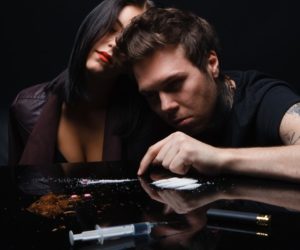Cocaine Recovery Timeline

If you are struggling with cocaine withdrawal symptoms, learn how detox and rehab can help
Cocaine is the drug that makes you feel like you can conquer the world. But in truth, the only thing that is being conquered is your mind, your body, and your life. If you are addicted to cocaine, you know what the drug has already done to you, and you should begin recovery treatment today. If you are thinking about trying cocaine, there are a few things you should know about how the drug affects you and about the cocaine recovery timeline.
Cocaine is among the top ten most abused drugs in the U.S. and it is especially popular among young adults aged 18 to 25. Cocaine is a powerful stimulant and pain blocker that can be snorted, injected or smoked. Some of the common street names for the drug are: snow, toot, coke, blow, C and flake.
Cocaine floods the brain with dopamine, a neurotransmitter that causes a euphoric state and also blocks the perception of pain. As a potent, highly addictive drug, people who abuse cocaine can quickly build up a tolerance to it. Once the body becomes tolerant of the drug’s presence, the effects of the drug are diminished. To compensate for this, the user will have to take more of the drug to produce the same effects as before. High levels of cocaine use can cause all types of physical and psychological problems, such as:
- Increased energy, talkativeness, hyperactivity, agitation, changes in attention and concentration,
- Nausea, malnutrition, hyperthermia
- Kidney damage, high blood pressure, Parkinson’s disease,
- Heart attacks, strokes, hardening of the arteries, heart muscle inflammation, seizures, death
- Thickened heart muscle walls, a ruptured aorta, respiratory depression, constricted blood vessels
- Shaking, tics and twitching, hyperthermia
- Paranoia, violent behavior, bizarre behavior, hallucinations, mental health disorders
Cocaine affects brain chemistry and the user may develop behavioral abnormalities, psychoses and new on-set attention deficit hyperactivity disorder (ADHD). Cocaine addiction is often partnered with people who already suffer from bipolar disorder, chronic depression, and anxiety disorder post traumatic stress disorder (PTSD) and obsessive-compulsive disorder (OCD).
Because cocaine withdrawal symptoms can be severe, the safest place to receive recovery treatment for cocaine addiction is at a drug treatment center. The first phase of treatment that you should receive at the rehab center is a medically supervised detox. The medical staff at the rehab will monitor you 24/7 throughout the detox process and you will be kept stable and safe. They can administer medications to help alleviate many cocaine withdrawal symptoms, and you will be kept as comfortable as possible. If you also suffer from a co-occurring mental disorder, you will probably be admitted as an inpatient because you will require more intensive care and treatment.
The cocaine withdrawal timeline usually begins during the first 90 minutes after taking the last dose of cocaine, when withdrawal symptoms may begin to appear. Cocaine withdrawal symptoms usually continue for about 7 to 10 days after the detox has begun. Each patient will have their own unique experience of cocaine withdrawal symptoms. Never try to stop cocaine addiction on your own because you can experience dangerous cocaine withdrawal symptoms, such as suicidal thoughts and acts.
Some of the cocaine withdrawal symptoms that you may experience are:
- Fatigue, exhaustion, decreased activity
- Difficulty concentrating, low libido
- Depression, mood swings, anxiety, paranoia, suicidal thoughts or actions,
- Intense cocaine cravings, increased appetite
- Tremors, nerve pain, chills, muscle aches
- Vivid dreams, nightmares
The cocaine recovery timeline for a time at the rehab center should be a minimum of 90 days for the treatment to be effective in helping the addict stay sober. The overall cocaine recovery timeline tells a different story. Recent research with the use of brains scans of current and former cocaine users and people who never used cocaine has concluded that brain function abnormalities are present within the groups that currently, or did use cocaine. Brain functions related to impulsivity, compulsivity and decision making processes were shown to be abnormal even in people who stopped using cocaine after four years. The researchers must now determine if these brain abnormalities existed before the cocaine use, or were actually caused by the cocaine.
Taking the cocaine recovery timeline research into consideration should be enough to deter anyone from using cocaine. But we know that this is not always the case because many people do not have the facts. If you have been thinking about trying cocaine, please reconsider. If you are addicted to cocaine, please get professional help at a drug treatment center today.
If you or a loved one needs help with abuse and/or treatment, please call the WhiteSands Treatment at (877) 855-3470. Our addiction specialists can assess your recovery needs and help you get the addiction treatment that provides the best chance for your long-term recovery.
